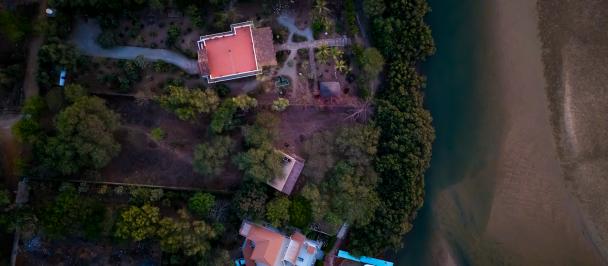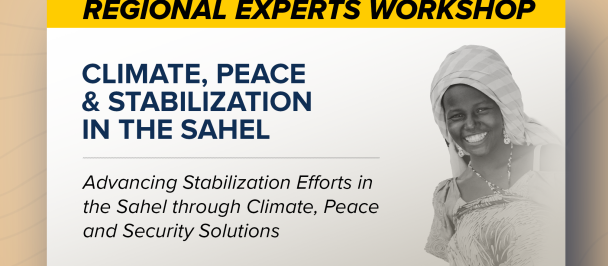Regional Conversations: Strengthening Peace and Stability in the Sahel through Active Engagement of Women and Youth
December 12, 2023

In collaboration with UNFPA, the UNDP Regional Stabilization Facility team organized and held the Regional Conversations series in Dakar on December 12 and 13, 2023. Convening 80 participants (in person and online), the event served as a crucial platform to discuss the leadership of women and youth in promoting peace and stability and their essential roles in the Lake Chad Basin and Liptako-Gourma regions.
Progress On Including Women and Youth for Sustainable Stabilization
Gender inequalities are intensifying in regions deeply affected by instability, violence and climate-related resource scarcity. To address these disparities, the Regional Stabilization Facility for Lake Chad and the Liptako-Gourma Basin works with communities and local, national and international partners to support conflict-affected populations, paying particular attention to specific issues that affect women, girls and young people. Initiatives such as restoring essential infrastructure, strengthening community livelihoods and close engagement with peace actors have had significant impacts on these issues.
"We demand access for women and youth to formal discussion spaces, not just side events. Youth are not just the future; we are primarily the present!”Caroline Mveng, President, Central African Young Feminists Network, Stabilization, Sahel
In many stabilization sites, the Facility has set up and supports Community Stabilization Committees, made up of representatives of local authorities, women’s and youth groups, and traditional chiefs. Community Stabilization Committees play essential roles in implementing and monitoring stabilization activities, promoting peace and enhancing social cohesion. The Committees also actively encourage and promote women’s leadership.
Investments in renewable energy and clean water access, including the construction and restoration of water points and the installation of solar streetlights, have significantly enhanced security for vulnerable populations, particularly women and girls. This has reduced health risks and increased economic opportunities.
In Lake Chad and Liptako-Gourma, livelihood programmes, including cash-for-work, short-term training and subsidies for productive and commercial assets, have benefitted over 44,000 women.
"The women in Bandiagara endure patriarchal-related violence. We call for strengthening access to education and microfinance for women and easing their access conditions to credit.”Hana Berthe, Coordination of Women’s Associations and NGOs in Mali (CAFO)
Engaging with local human rights actors to establish a more accountable justice system resulted in training 5,248 security force members (including 500 women) on human rights and gender-based violence prevention. These security force members are active in both regions.
Over 435,000 individuals, 54 percent of whom are women, have voluntarily returned to their villages, enabling a dignified reconstruction of their lives. According to community perception surveys, more than 600,000 women in the Lake Chad region now feel safer, reflecting a substantial increase from 2020 levels.
Empowering Women and Youth: Addressing Specific Needs and Fostering Leadership
Despite these advancements, challenges persist, particularly in improving the consideration of the specific needs of women and youth and strengthening their capacities throughout stabilization processes. Women’s leadership in finding sustainable solutions is hindered by the rigidity of patriarchy, which limits their qualitative and quantitative participation in peace and stability processes. Furthermore, rising instability has exacerbated the exclusion of youth, making them more susceptible to radicalization and violent extremism and further marginalizing them in peace processes.
“Young people demand that their voices be heard! To truly make an impact, give them space for free expression. It’s not enough for youth to be mere advocates; they must be at the forefront of action. We insist on quotas for youth representation in our institutions in Cameroon and Central Africa.”NGEN Yves Riyuh, Youth rights and peace advocate at LifeAID
These exchanges have contributed to better fine-tuning the next phase of the Stabilization programme. This will incorporate stronger and more structured gender and youth perspectives for more inclusive and sustainable results.
The regional conversations highlighted the importance of actively engaging women and young people in building a more resilient Sahel, including them in formal spaces and at all decision-making levels, and promoting their economic empowerment.
It is essential to strengthen the protection of women’s and girls’ rights, which are often neglected in conflict zones. Improving community-based approaches and mechanisms for reporting cases of violence is also imperative.

 Locations
Locations



